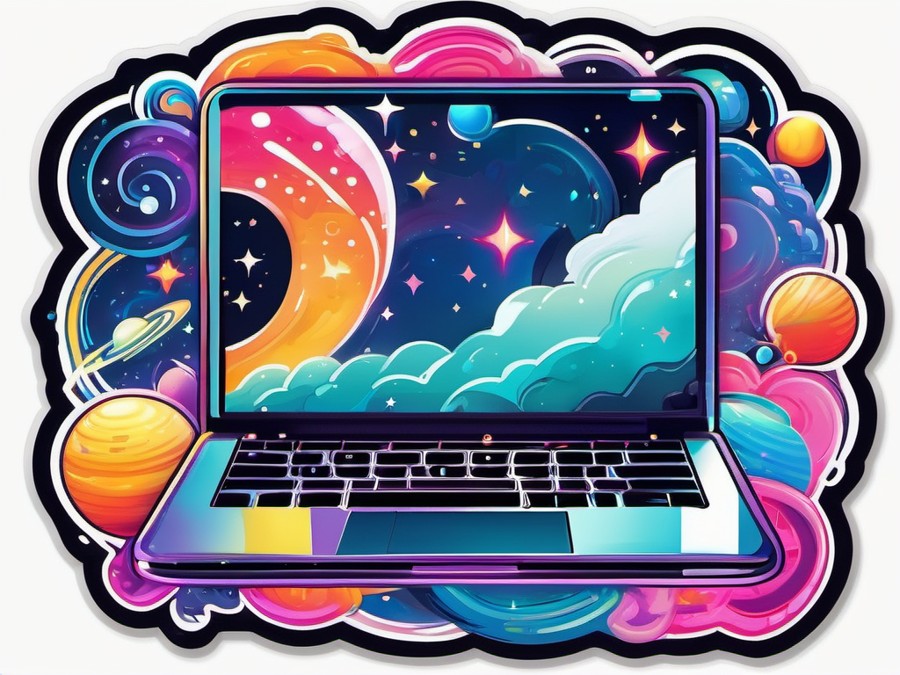· Charlotte Will · Cooling Pads & External Fans · 5 min read
What is the Impact of Cooling Pads on Laptop Lifespan?
Discover how cooling pads can extend your laptop's lifespan by managing heat effectively. Learn about the myths, misconceptions, and best practices for using cooling pads to keep your laptop running smoothly.

You’re sitting there, fingers dancing across the keyboard, and suddenly your laptop starts to fan itself like a steam engine. The heat is palpable, and you’re worried that this kind of overheating just can’t be good for your device. So, you start thinking about getting a cooling pad to keep things running smoothly and coolly. But how much does it really help? Let’s delve into the world of cooling pads and explore their impact on your laptop’s lifespan.
Understanding Why Laptops Overheat
The Role of Resources and Components
First, let’s look at the two principal resources that generate heat in your laptop: the Central Processing Unit (CPU) and the Graphics Processing Unit (GPU). Both of these are working hard, often simultaneously, which leads to a build-up of heat that needs to be managed effectively.
How Heat Affects System Performance
When the temperature gets too high, your laptop might start throttling—reducing its performance to avoid overheating. This is like a car slowing down on a hot day to keep the engine from overheating. Additionally, excessive heat can cause system instability and crashes, which is basically the laptop equivalent of a nervous breakdown.
The Basics of Cooling Pads
How Do They Work?
A cooling pad is essentially a platform with built-in fans that help to dissipate the heat generated by your laptop. By increasing airflow, they can significantly reduce the surface temperature of your device.
Different Types of Cooling Pads
There are two main types: USB-powered cooling pads that draw power directly from your laptop, and standalone models that use a separate power source.
Impact of Cooling Pads on Laptop Performance
Improved Heat Dissipation
The primary benefit of a cooling pad is that it enhances heat dissipation. By maintaining lower temperatures, you can reduce thermal throttling, allowing your CPU and GPU to perform at their optimal levels.
Increased Stability and Reliability
Consistent performance means better stability, which translates to fewer crashes and more reliable use. This is especially important for tasks that require sustained performance, such as video editing or gaming.
Long-Term Effects on Laptop Components
CPU and GPU Health
Over time, excessive heat can degrade the performance and lifespan of your CPU and GPU. By keeping these components cool, a cooling pad can help prevent heat-related damage, thereby extending their lifespan.
Protection of Other Components
Heat also affects other components such as the motherboard, RAM, and storage devices. Although cooling pads are primarily aimed at CPUs and GPUs, the overall reduction in system temperature can benefit these components as well.
Addressing Myths and Misconceptions
Do Cooling Pads Extend Lifespan?
The answer is not straightforward. While cooling pads can help maintain peak performance for longer periods, they cannot entirely eliminate the degradation that comes with age and use. However, proper heat management can significantly delay the onset of degradation.
Common Misconceptions Debunked
Some people believe that cooling pads might be overkill for modern laptops. While it’s true that manufacturers have made advances in heat management, every laptop will still benefit from additional cooling, especially during intensive tasks.
Best Practices for Using Cooling Pads
Proper Placement and Ventilation
To get the most out of your cooling pad, ensure that it is placed correctly and that nothing obstructs the vents. Proper airflow is crucial for effective heat dissipation.
Maintenance and Cleaning
Regularly clean the fans of your cooling pad to remove dust buildup. Dust can hinder fan performance and reduce the overall efficiency of your cooling solution.
Comparative Analysis: Cooling Pads vs. Other Solutions
Liquid Cooling Systems
For those with gaming laptops, a liquid cooling system might be more beneficial. These systems can provide superior heat management but come with their own set of considerations, such as installation complexity and cost. Learn more about gaming laptop cooling solutions.
Passive Cooling Methods
Using a simple laptop stand or cooling mat can also help, especially when combined with software solutions that monitor and manage system temperature. These methods might not be as effective as active cooling pads but can still provide some relief.
Laptop Maintenance Beyond Cooling
Software Solutions
Monitoring tools can help you keep an eye on your laptop’s temperature in real-time. This allows you to take preventive actions before the heat becomes a problem.
Environment and Usage Factors
Avoid using your laptop in high-heat environments. Placing it on a soft, breathable surface can also help with heat dissipation. Additionally, regular software updates and maintenance can ensure that your system is running at its best.
Case Studies and Real-Life Examples
From Overheating to Stable Performance
Many users have reported significant improvements in their laptop’s performance after using a cooling pad. One user noted that his gaming laptop’s temperatures dropped by 15-20°C, leading to stable and consistent performance during intense gaming sessions.
Lessons Learned from Failure
Conversely, there are stories of laptops failing due to inadequate cooling. In one instance, a user’s laptop started experiencing frequent crashes and performance drops due to overheating. This underscores the importance of proper heat management in extending your laptop’s lifespan.
Conclusion: Balancing Heat Management and Lifespan
Using a cooling pad can significantly extend your laptop’s lifespan by keeping components cool and stable. However, it’s essential to consider all factors that contribute to heat management. From proper placement and maintenance of your cooling pad to software solutions and environmental considerations, a holistic approach will yield the best results.
FAQs:
How can I tell if my laptop needs a cooling pad?
- If your laptop is frequently overheating or experiencing performance drops, it might benefit from a cooling pad.
Are all laptops prone to overheating?
- While modern designs include better heat management, all laptops can potentially overheat depending on usage and environment.
Can I use a cooling pad with any laptop?
- Yes, most cooling pads are universally compatible, but it’s good to check sizes and specifications.
How often should I clean my cooling pad?
- Dust buildup can affect performance, so regular cleaning every few months is recommended.
Are there any alternatives to cooling pads?
- Yes, you can use elevating stands or even passive cooling mats in combination with software solutions for optimal heat management.
By incorporating these best practices, you can help ensure that your laptop runs cool and performs well for a longer period. So, why not give your laptop the gift of a cooling pad and enjoy stable, reliable performance?




